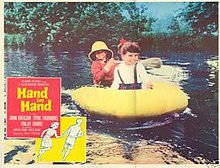Plot
Michael O'Malley (Needs), rushes to his priest to tearfully inform him that he has accidentally killed his closest friend, Rachel Mathias (Parry). The story is told in flashback as Michael recounts their friendship, when he first befriended Rachel by hurrying her away from a group of schoolboys who were verbally bullying her on the playground. They quickly become the best of friends. The young children decide to become "blood brothers" by pricking their fingers and rubbing the blood together. They set off for an adventure, hoping to go to London to visit the queen, but instead are picked up by a kindly elderly lady (Sybil Thorndike) who takes them to her home for tea, pretending that she is a princess and that her mansion is one of the queen's homes, but that the queen is currently away. Her amiable deception goes over perfectly, and the children have a great time visiting with her.
Michael and Rachel are aware that they worship on different days and their religions are somewhat different, but they do not ponder the specifics. However, when a somewhat overbearing and destructively-outspoken classmate informs Michael that Rachel is Jewish and that "the Jews killed Christ", an outraged Michael rushes to Rachel at their clubhouse and angrily confronts her, "Why did you kill Christ?" Rachel is shocked and insistently denies it: "I didn't kill him. I don't even know him". Michael and Rachel conclude that God is angry at them for becoming friends, but they are not sure if He will forgive them. They decide to attend church with each other to see if God is mad at them, believing they will die if He does not want them to go to each other's church. Michael sneaks into the synagogue with Rachel the next Saturday and is somewhat puzzled and intimidated by the ceremony, but he stays and seems to like it as time goes on, especially after the kindly rabbi shows him a passage in the Torah that speaks of God's love shielding him from all fear. The next day, Rachel goes with Michael to his church, and while Rachel is initially somewhat unnerved by the services and statues, she too feels more comfortable after a while, especially as the Blessed Virgin's gentle expression appeals to her: "It's all right, Mike. The lady likes me."
Having concluded it is acceptable to God that they remain friends, Michael and Rachel decide to take an inflatable raft on the River Thames for their next adventure, a trip to Africa. All goes well at first as Michael paddles and the raft drifts leisurely and makes smooth ripples on the calm water, but then when the duo passes into a dangerous section of the river with a swifter flow and strong rapids, Michael loses control of the raft, and Rachel is knocked overboard. Due to the stronger current and the riverbank's dense underbrush in which Rachel has become entangled, Michael has great difficulty reaching her, but at last pulls her out of the river; however, she is limp and unresponsive. Fearing the worst, Michael frantically rushes to get help, and adults in the area call for an ambulance. The film then returns to the present moment, with Michael in his grief-stricken state, and telling the priest that he's killed Rachel. The priest comforts him and tells him that Rachel may be all right, and then accompanies him to Rachel's home to see how she is. They are met at the front door by Rachel's rabbi who is leaving, and he smilingly informs them that Rachel has pulled through after all and is recovering well, but that perhaps it would be better to wait till tomorrow to visit her. Michael, immensely relieved, rushes home happy that his little friend is still alive, and the priest and the rabbi --- who earlier in the film have been established as being good friends despite their differing religions (just as the Catholic boy Michael and Jewish girl Rachel had become close), and acknowledging that their respective religions actually hold more in common than they may have realized before --- speak warmly to each other before walking away in different directions.
Yohanan ben Zakkai, sometimes abbreviated as Ribaz for Rabbi Yohanan ben Zakkai, was one of the Tannaim, an important Jewish sage during the late Second Temple period and in the transformative post-destruction era. He was a primary contributor to the core text of Rabbinic Judaism, the Mishnah. His name is often preceded by the honorific title, "Rabban." He is widely regarded as one of the most important Jewish figures of his time, and his escape from the Roman destruction of Jerusalem may have been instrumental in Rabbinic Judaism's survival post-Temple. His tomb is located in Tiberias within the Maimonides burial compound.

The tradition of humor in Judaism dates back to the Torah and the Midrash from the ancient Middle East, but generally refers to the more recent stream of verbal and often anecdotal humor of Ashkenazi Jews which took root in the United States over the last hundred years, including in secular Jewish culture. European Jewish humor in its early form developed in the Jewish community of the Holy Roman Empire, with theological satire becoming a traditional way of clandestinely opposing Christianization.
The Shidduch is a system of matchmaking in which Jewish singles are introduced to one another in Orthodox Jewish communities for the purpose of marriage.

Sir Lewis Thomas Casson MC was an English actor and theatre director, and the husband of actress Dame Sybil Thorndike.
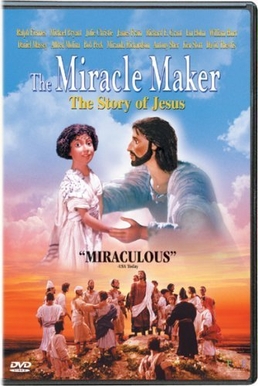
The Miracle Maker sometimes subtitled The Story of Jesus, is a 1999 Welsh-Russian stop motion-animated film directed by Derek Hayes and Stanislav Sokolov of the life of Jesus Christ, voiced by Ralph Fiennes. Hand-drawn animated cartoons are used to distinguish flashbacks, parables, stories, spiritual encounters and visions from the main plot, which is all in stop motion.

James Ford, better known by the alias "Sawyer" and later as "Jim LaFleur", is a fictional character on the ABC television series Lost, portrayed by Josh Holloway. Created by Jeffrey Lieber, J. J. Abrams and Damon Lindelof, he first appeared in the pilot as one of the survivors of Oceanic Flight 815 which crashed on a mysterious island, and remained one of the show's main characters.
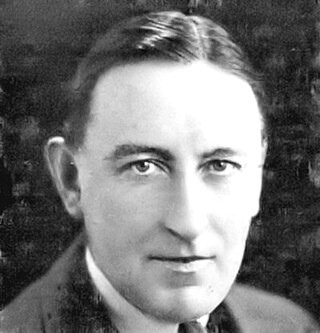
Arthur Russell Thorndike was a British actor and novelist, best known for the Doctor Syn of Romney Marsh novels. Less well-known than his sister Sybil but equally versatile, Russell Thorndike's first love was writing and, after serving in World War I, he devoted himself to it.
Shake Hands with the Devil is a 1959 film produced and directed by Michael Anderson and starring James Cagney, Don Murray, Dana Wynter, Glynis Johns and Michael Redgrave. The picture was filmed in Dublin, and at Ardmore Studios in Bray, Ireland. The picture was based on the 1933 novel of the same title by Rearden Conner, the son of a Royal Irish Constabulary policeman.

Vayetze, Vayeitzei, or Vayetzei is the seventh weekly Torah portion in the annual Jewish cycle of Torah reading. It constitutes Genesis 28:10–32:3. The parashah tells of Jacob's travels to, life in, and return from Harran. The parashah recounts Jacob's dream of a ladder to heaven, Jacob's meeting of Rachel at the well, Jacob's time working for Laban and living with Rachel and Leah, the birth of Jacob's children, and the departure of Jacob's family from Laban.
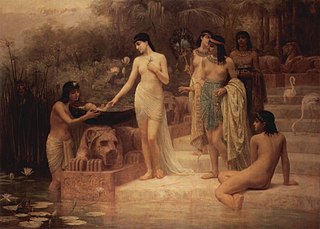
Shemot, Shemoth, or Shemos is the thirteenth weekly Torah portion in the annual Jewish cycle of Torah reading and the first in the Book of Exodus. It constitutes Exodus 1:1–6:1. The parashah tells of the Israelites' affliction in Egypt, the hiding and rescuing of the infant Moses, Moses in Midian, the calling of Moses, circumcision on the way, meeting the elders, and Moses before Pharaoh.
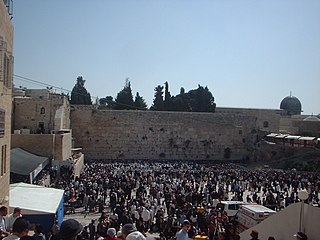
The Priestly Blessing or priestly benediction, also known in rabbinic literature as raising of the hands, rising to the platform, dukhenen, or duchening, is a Hebrew prayer recited by Kohanim. The text of the blessing is found in Numbers 6:23–27.

Rabbi Tarfon or Tarphon, a Kohen, was a member of the third generation of the Mishnah sages, who lived in the period between the destruction of the Second Temple and the fall of Betar.
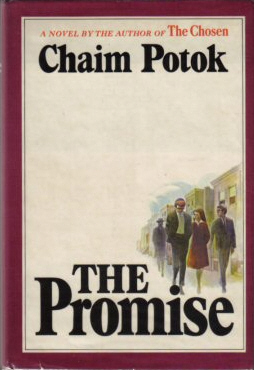
The Promise is a novel written by Chaim Potok, published in 1969. It is a sequel to his previous novel The Chosen. Set in 1950s New York, it continues the saga of the two friends, Reuven Malter, a Modern Orthodox Jew studying to become a rabbi, and Danny Saunders, a genius Hasidic Jew who has broken with his sect's tradition by refusing to take his father's place as rebbe in order to become a psychologist. The theme of the conflict between traditional and modern Orthodox Judaism that runs throughout The Chosen is expanded here against the backdrop of the changes that have taken place in Reuven and Danny's world in the period of time between the two novels: following World War II, European survivors of the Holocaust have come to America, rebuilding their shattered lives and often making their fiercely traditionalist religious viewpoint felt among their people.
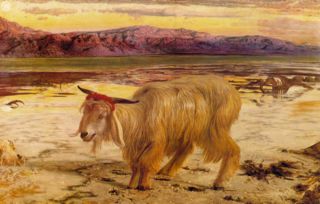
Acharei Mot is the 29th weekly Torah portion in the annual Jewish cycle of Torah reading. It is the sixth weekly portion in the Book of Leviticus, containing Leviticus 16:1–18:30. It is named after the fifth and sixth Hebrew words of the parashah, its first distinctive words.

Emor is the 31st weekly Torah portion in the annual Jewish cycle of Torah reading and the eighth in the Book of Leviticus. The parashah describes purity rules for priests, recounts the holy days, describes the preparations for the lights and bread in the sanctuary, and tells the story of a blasphemer and his punishment. The parashah constitutes Leviticus 21:1–24:23. It has the most verses of any of the weekly Torah portions in the Book of Leviticus, and is made up of 6,106 Hebrew letters, 1,614 Hebrew words, 124 verses and 215 lines in a Torah Scroll.
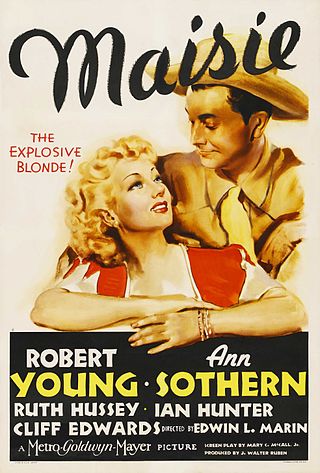
Maisie is a 1939 American comedy film directed by Edwin L. Marin based on the 1935 novel Dark Dame by Wilson Collison. The rights to the novel were originally purchased by MGM for a Jean Harlow film, but Harlow died in 1937 before a shooting script could be completed. The project was put on hold until 1939, when Ann Sothern was hired to star in the film with Robert Young as leading man.
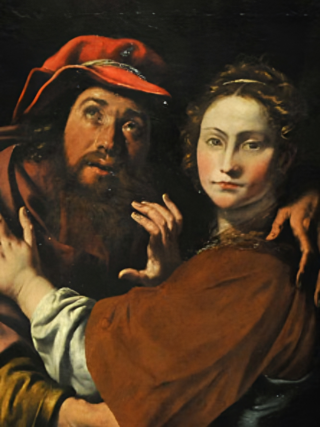
Rachel was a Biblical figure, the favorite of Jacob's two wives, and the mother of Joseph and Benjamin, two of the twelve progenitors of the tribes of Israel. Rachel's father was Laban. Her older sister was Leah, Jacob's first wife. Her aunt Rebecca was Jacob's mother.

Alive and Kicking is a 1959 British comedy film directed by Cyril Frankel and starring Sybil Thorndike, Kathleen Harrison, Estelle Winwood and Stanley Holloway, with Richard Harris making his film debut. Three women run away from a retirement home in order to avoid being separated. They eventually end up running a successful cottage industry sweater business on a remote island offshore of Ireland.

Prisoners is a 2013 American thriller film directed by Denis Villeneuve and written by Aaron Guzikowski. The film has an ensemble cast including Hugh Jackman, Jake Gyllenhaal, Viola Davis, Maria Bello, Terrence Howard, Melissa Leo, and Paul Dano.

JeruZalem is a 2015 English-language Israeli supernatural horror film. Written and directed by Doron and Yoav Paz, the film stars Yael Grobglas, Yon Tumarkin, Danielle Jadelyn, and Tom Graziani.
